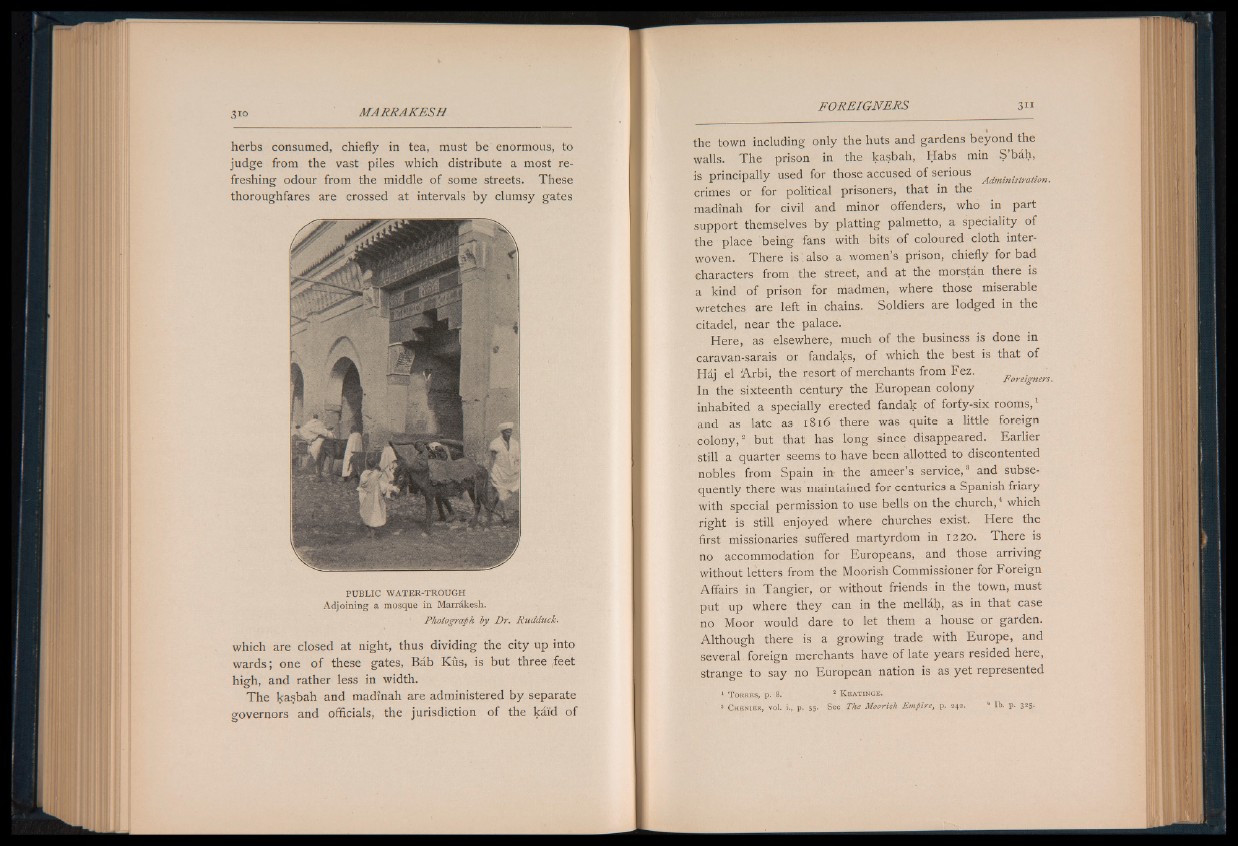
herbs consumed, chiefly in tea, must be enormous, to
judge from the vast piles which distribute a most refreshing
odour from the middle of some streets. These
thoroughfares are crossed at intervals by clumsy gates
PUBLIC WATER-TROUGH
Adjoining a mosque in Marrikesh.
Photograph by Dr. Rudduck.
which are closed at night, thus dividing the city up into
wards; one o f these gates, Bab Kus, is but three feet
high, and rather less in width.
The kasbah and madinah are administered by separate
governors and officials, the jurisdiction of the kaid of
FOREIGNERS
the town including only the huts and gardens beyond the
walls. The prison in the kasbah, Habs min S ’bah,
is principally used for those accused of serious ' *
crimes or for political prisoners, that in the
madinah for civil and minor offenders, who in part
support themselves by platting palmetto, a speciality of
the place being fans with bits of coloured cloth interwoven.
There is . also a women’s prison, chiefly for bad
characters from the street, and at the morstan there is
a kind of prison for madmen, where those miserable
wretches are left in chains. Soldiers are lodged in the
citadel, near the palace.
Here, as elsewhere, much of the business is done in
caravan-sarais or fandaks, of which the best is that of
Haj el ’Arbi, the resort of merchants from Fez. Foreigners.
In the sixteenth century the European colony
inhabited a specially erected fandak of forfy-six rooms,1
and as late as 1816 there was quite a little foreign
colony,3 but that has long since disappeared. Earlier
still a quarter seems to have been allotted to discontented
nobles from Spain in the ameer’s service,3 and subsequently
there was maintained for centuries a Spanish friary
with special permission to use bells on the church,4 which
right is still enjoyed where churches exist. Here the
first missionaries suffered martyrdom in 1220. There is
no accommodation for Europeans, and those arriving
without letters from the Moorish Commissioner for Foreign
Affairs in Tangier, or without friends in the town, must
put up where they can in the mellah, as in that case
no Moor would dare to let them a house or garden.
Although there is a growing trade with Europe, and
several foreign merchants have of late years resided here,
strange to say no European nation is as yet represented
1 T o r r e s , p . 8. 2 K e a t i n g e .
3 C h e n i e r , vol. ¡., p. 55- See The Moorish Empire, p. 242. " lb. p. 325.